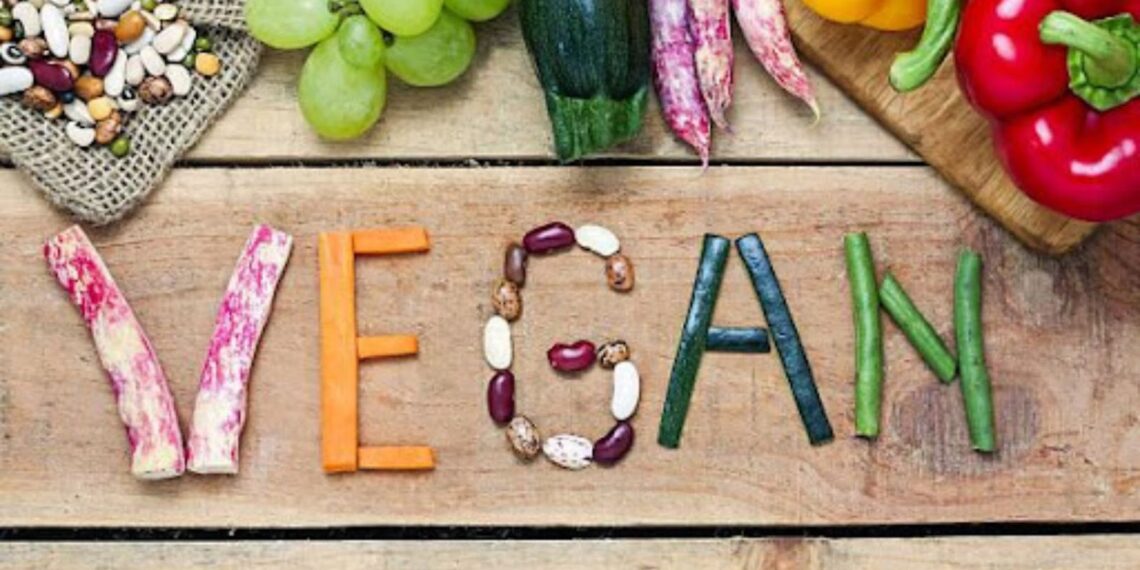Changing to a vegan diet can seem daunting, but it doesn’t have to be. We’ll be going to give you all the information you need to support you on your vegan journey. From understanding what a vegan diet is, why many people choose this lifestyle, and how a beginner like you can easily make such a transition.
What is a Vegan Diet?
A vegan diet is a plant-based diet that excludes all animal products, including meat, poultry, fish, eggs, dairy products, and honey. Instead, vegans follow a diet of fruits, vegetables, grains, legumes, and nuts. Some vegans also avoid foods that are processed or contain animal ingredients.
In recent years, the vegan diet has gained much popularity. Veganism is practiced for a variety of reasons, including health, ethics, and the environment.
Why Do People Follow a Vegan Diet?
- One of the top reasons for choosing a vegan diet is weight loss. People who follow a vegan diet tend to be thinner and have less body fat than those who don’t. This is due to the fact that a vegan diet often contains fewer calories and unhealthy fats than other diets. Plus, plant-based foods are generally more filling than animal-based foods, so you’re less likely to overeat.
- Following a vegan diet can also help prevent or manage some chronic diseases. This is due to the fact that a vegan diet is high in fiber content and minerals while being low in cholesterol and other saturated fats.

Fiber helps reduce the risk of heart-related illness and other conditions like obesity and type 2 diabetes, while nutrients like vitamins C and E can help protect against cancer. Additionally, some observational studies found that people who follow a vegetarian diet may have a 75% lower chance of developing high blood pressure. That’s why many people think that veganism could be the key to better health.
- Lastly, people follow a vegan diet because it is good for the environment. By avoiding animal products, they are contributing to the reduction of pollution and deforestation, which are two major effects of animal agriculture. Plus, plant-based foods require less water and land to produce than animal-based foods, so following a vegan diet can help conserve these resources.
How to Change to a Vegan Diet as a Beginner?
For beginners, making the switch to a vegan diet can be a bit challenging. However, the following ten suggestions will help a beginner as you adapt to a vegan diet.
1. Choose Vegan Foods that You Already Love
Even though it might seem quite simple, this is crucial to remember because it can significantly affect how effectively you go vegan. For example, if you try to switch to a vegan diet, cold turkey, and immediately start eating foods you don’t like, chances are you’re not going to stick with it. But if you progressively include vegan versions of your favorite foods, the transition will go much more smoothly.
2. Find Some Good Vegan Recipes
Once you’ve identified some vegan foods that you like, it’s time to find some recipes so you can start cooking! There are a ton of great vegan recipes online, in cookbooks, and even in magazines these days. Do a search for “vegan recipe” + one of your favorite ingredients, and you’re sure to find something delicious.
3. Experiment with New Vegan Foods
In addition to eating vegan versions of foods you already love, it’s also fun to experiment with new vegan foods. There are so many delicious plant-based foods available, and after giving them a try, you might be delightfully pleased.
4. Check the Labels of Your Favorite Non-Vegan Products
According to Trish Deseine, there is a distinction between “vegetarian” and “vegan.” Just because it is labeled as “vegetarian” doesn’t mean it’s vegan. So, if you’re not sure whether a food is vegan or not, be sure to check the label. Many animal-derived ingredients are surprisingly common in food, so this step is important if you want to avoid them.
5. When You Need Assistance, Ask for It
If you’re feeling overwhelmed by the thought of switching to a vegan diet, know that you don’t have to do it alone. A buddy who is already vegan, a vegan cooking class, or an online forum are all excellent sources of support.
6. Be Prepared When You Go Out to Eat
When you’re first making the switch to a vegan diet, it can be helpful to be prepared when you go out to eat. This means doing a little research ahead of time so you know what restaurants in your area have vegan-friendly options.

It can also be helpful to carry along some snacks or quick meals, just in case you get stuck somewhere without anything to eat.
7. Don’t Be Too Hard on Yourself
Making any major dietary change can be tough, and it’s OK if you make mistakes or have slip-ups along the way. Just do your best, be gentle with yourself, and know that every little bit helps.
8. Be Patient
The transition to a vegan diet may take some time, and changing your taste preferences may take even longer. As a result, treat yourself nicely and give yourself some time to adjust.
9. Celebrate Your Victories
Every time you make it through a meal or a day without eating animal products, give yourself a pat on the back. It deserves celebration even though it might not seem like a big occasion!
10. Have Fun with It!
Remember that adopting a vegan diet doesn’t have to be a serious task at the end of the day. Experimenting with new foods and recipes can be enjoyable, and you might even discover that you like the challenge of living a vegan lifestyle. Try new things, be adventurous, and most importantly, enjoy yourself!
Conclusion
Going vegan is easier than ever, and plenty of resources are available to help you get started. You may easily make the switch with a little bit of planning.














